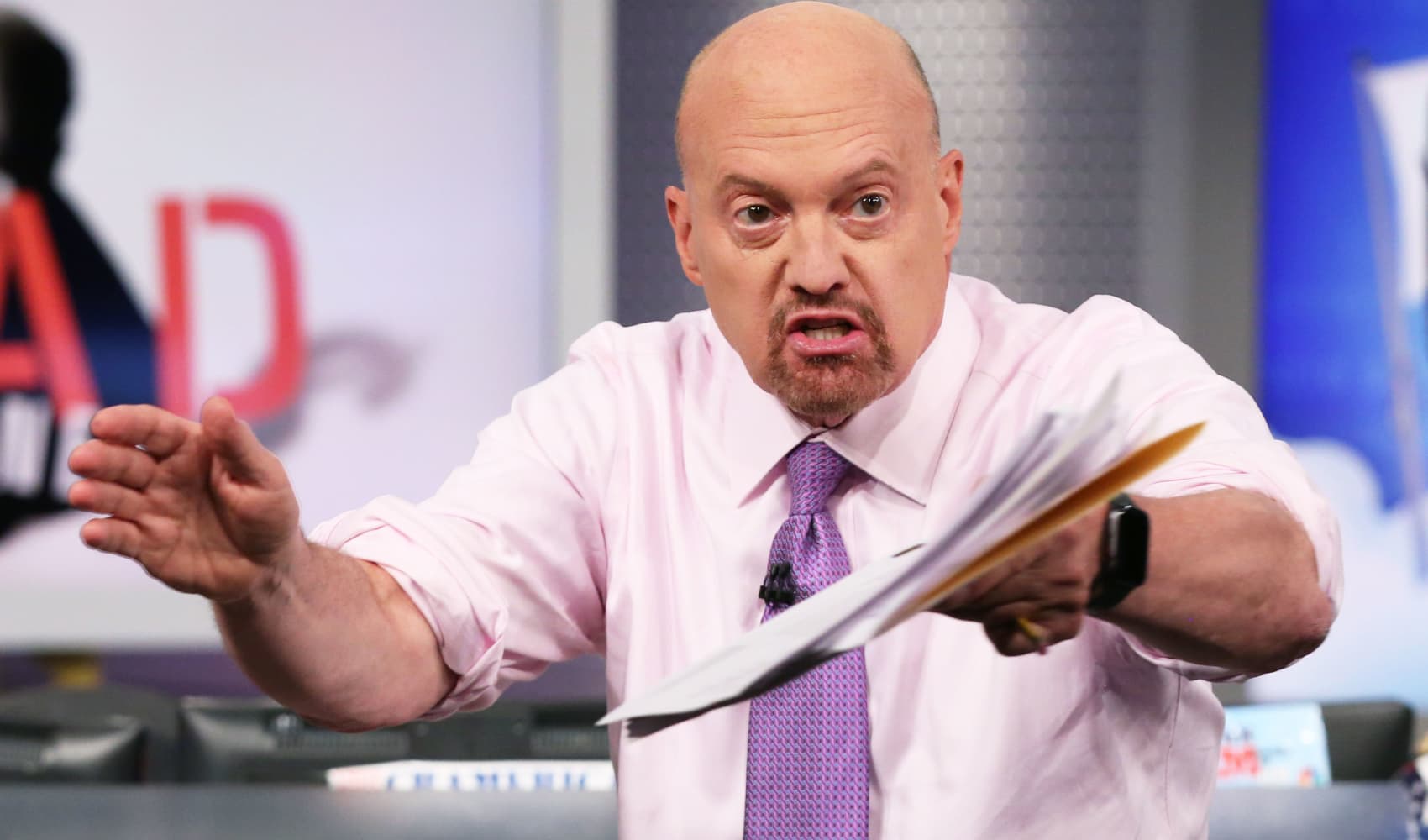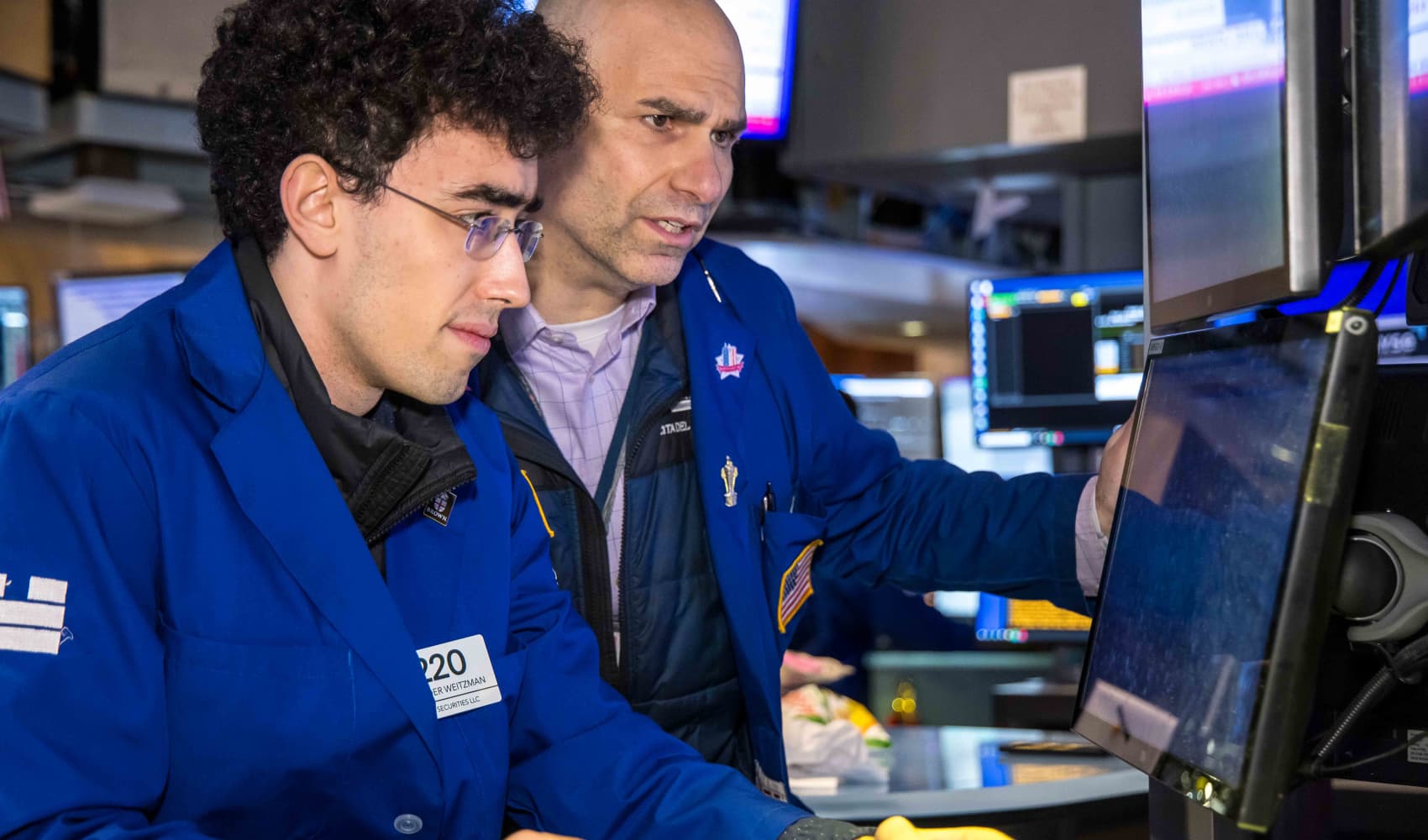
This is CNBC's live blog covering Asia-Pacific markets.
Asia-Pacific markets were mixed on Friday, as investors weigh remarks from U.S. Treasury Secretary Janet Yellen, who said federal emergency actions to back up failed regional banks could be used again if necessary.
WATCH ANYTIME FOR FREE
>Stream NBC10 Boston news for free, 24/7, wherever you are. |
This conveyed a different message compared to Yellen's comments a day earlier, when she told senators that the Treasury was not considering any plans to insure all U.S. bank deposits without congressional approval.
The Hang Seng index led losses in the region, trading 0.65% lower, but the Hang Seng Tech index was up 0.61%.
Get updates on what's happening in Boston to your inbox. Sign up for our >News Headlines newsletter.
In mainland China, the Shanghai Composite closed 0.64% down at 3,265.65, but the Shenzhen Component was up 0.25% to end at 11,634.22.
South Korea's Kospi fell 0.39% to finish at 2,414.96, but the Kosdaq traded 1.47% higher to end at 824.11.
In Japan, the Nikkei 225 was down 0.13% to close at 27,385.25 and the Topix finished 0.1% lower at 1,955.32.
Money Report
The country saw its core inflation come in at 3.1% for February, marking the first time in 14 months that the pace of inflation has slowed.
Australia's S&P/ASX 200 was 0.19% lower, ending the day at 6,955.2.
Overnight in the US, stocks ended higher on Thursday after a volatile trading session. The tech-heavy Nasdaq Composite led gains and climbed 1%, while the S&P 500 closed 0.29% higher and the Dow Jones Industrial Average rose 73.66 points.
— CNBC's Hakyung Kim, Tanaya Macheel and Christina Wilkie contributed to this report.
HSBC and Stanchart fall about 3% on Hang Seng
Hong Kong banks have slid about 3% on Friday, with HSBC among one of the largest losers on the Hang Seng Index.
HSBC was trading 2.79% lower compared to its last close, while counterpart Standard Chartered was down 3.05%.
— Lim Hui Jie
HKEX eases listings rules for 'specialist tech' companies
Hong Kong Exchanges and Clearing announced eased listing rules for so-called "specialist tech firms," including a lower requirement for research and development expenditure.
The required minimum market capitalization for such companies will be 6 billion Hong Kong dollars ($764.4 million) — lower than the consultation proposal of HK$8 billion.
The threshold for pre-commercial companies was also lowered from its original proposal of a required market cap of HK$15 billion to HK$10 billion.
The measures will take effect on March 31, the exchange said.
— Jihye Lee
A general public ban of TikTok in U.S. doesn't make sense, says national security expert
A general public ban of TikTok by U.S. lawmakers "doesn't make sense", said Glenn Gerstell, senior adviser at Center for Strategic and International Studies (CSIS).
TikTok's CEO Shou Zi Chew did not succeed in curbing U.S. concerns over the Chinese short-video app's links to China during an intense five-plus hour hearing in Congress on Thursday.
"A ban of the app from government and military phones makes sense," Gerstell told CNBC's "Street Signs Asia" on Friday, adding that there "really are indeed genuine national security risks associated with this."
"A general public ban, to me, doesn't make sense. I don't see the strategic value in China understanding what the dance moves of a teenager in Minneapolis are," said Gerstell, who also served as general counsel at National Security Agency of the U.S.
TikTok's Chew had said in Congress that China-based employees at its parent company ByteDance still have access to some U.S. data.
— Sheila Chiang
Australia-listed shares of Block plunge following Hindenburg report
Australia-listed shares of payment firm Block plunged nearly 20%, following the moves of U.S.-listed shares after Hindenburg Research announced that the payment company was its latest short position.
The short-seller said Block allowed criminal activity to operate with lax controls and "highly" inflates Cash App's transacting user base, a key metric of performance.
In response to the report, Block said it intends to work with officials and "explore legal action against Hindenburg Research for the factually inaccurate and misleading report they shared about our Cash App business."
The firm's Australia-listed shares fell immediately at the open and traded more than 19.6% lower in Asia's afternoon trade. Meanwhile, shares of buy now, pay later firm Zip rose more than 5%.
— Jihye Lee, Rohan Goswami, MacKenzie Sigalos
'You have to separate that legal control': Ex-U.S. general counsel amid concerns of TikTok's connections to China
Chinese tech giant and TikTok parent ByteDance has to "separate the legal control" on the short-form video app amid U.S. concerns over TikTok's connections to China, said a former general counsel to the U.S. Department of Commerce.
"Besides criticisms about the content, the algorithms and things of that nature, it was that ByteDance has the legal control and [that TikTok's CEO] reports back to ByteDance," said Cameron Kerry, who is also visiting fellow with Brookings Institution, on CNBC's "Squawk Box Asia" on Friday.
At the hearing in Congress on Thursday, TikTok CEO Shou Zi Chew's testimony did not manage to curb U.S. lawmakers' concerns of TikTok's connections to China or the adequacy of Project Texas, a plan to store American user data in U.S.
"I do think you have to separate that legal control. You could do something like that with a trust arrangement to separate the legal control ByteDance has from the benefit of its ownership," said Kerry.
"I don't think a shutdown, a ban or a complete divestiture [of TikTok] is needed," he added.
— Sheila Chiang
HKMA says Hong Kong sees little impact from banking turmoil in U.S., Europe
Hong Kong Monetary Authority Chief Executive Eddie Yue said Hong Kong sees "little impact" from the fallout of the global banking sector turmoil.
"I would say that the recent events in the U.S. and Europe has very little impact on Hong Kong," Yue said in a briefing, adding that Hong Kong's banks have "only very limited exposures to all the banks that are now featured in the newspapers" without naming them.
Noting that the situation has "largely stabilized," Yue emphasized that he will be monitoring for potential changes ahead.
"The liquidity has been extended, but whether there will be further changes, we will need to monitor," Yue said. "We, of course, the banks in Hong Kong or the banks around the world will have to get prepared if there should be more volatility coming into the market," he said.
– Vivian Kam, Jihye Lee
Japan factory activity growth stays contracted for five straight months
Japan's factory activity for March has risen slightly, but still remained in contraction territory for the fifth straight month, a flash estimate from au Jibun Bank showed.
The manufacturing purchasing managers' index climbed to 48.6 from 47.7 in February, its first rise since March 2022.
A PMI reading above 50 indicates expansion, while a reading below 50 signals contraction in growth.
But the estimate for Japan's services sector came it at 54.2 for March, slightly above the 54.0 print for February, and the strongest reading since October 2013.
— Lim Hui Jie
Australia's factory and services activity contracts in March
Australia's services and factory activity fell into contraction territory in March, based on estimates by Juno Bank.
Its manufacturing purchasing managers index in March came in 48.7, while the services PMI came in at 48.2, down from 50.5 and 50.7 in February, respectively.
A PMI above 50 shows expansion, while a reading under 50 signals a contraction in growth.
The bank noted weak demand led to lower business activity. This was due to higher interest rates, still-elevated inflation and softer economic conditions, which affected new business for both Australian goods and services.
— Lim Hui Jie
Japan's core inflation falls from January peak
Japan's core inflation reading fell from its January peak of 4.2% to 3.1% year-on-year in February, government data showed Friday.
The reading matches expectations of economists surveyed by Reuters.
Overall, nationwide inflation was at 3.3% for the month compared to a year ago, also lower than the January print of 4.3%.
The economy's consumer price index excluding fresh food and energy also rose 3.5% for the month year-on-year.
— Jihye Lee
Treasury Secretary Yellen says emergency actions to backstop banks could be used again if needed
Treasury Secretary Janet Yellen said Thursday that the federal emergency actions used to backstop Silicon Valley Bank and Signature Bank customers could be used again if necessary.
"We have used important tools to act quickly to prevent contagion. And they are tools we could use again," Yellen said in written testimony before a House Appropriations subcommittee.
"The strong actions we have taken ensure that Americans' deposits are safe," she added. "Certainly, we would be prepared to take additional actions if warranted."
Her comments come as regulators have aimed to reassure customers and investors amid the banking crisis that was promoted by Silicon Valley Bank's closure.
— Alex Harring, Christina Wilkie
Jobless claims come in below expectations
Jobless claims unexpectedly nudged lower last week, pointing to a labor market that remains extremely tight.
Initial filings for unemployment insurance totaled 191,000 for the week ended March 18, below the estimate for 198,000, the Labor Department reported Thursday. That was a decline of 1,000 from the previous period.
Continuing claims, which run a week behind, rose by 14,000 to 1.694 million.
Stock market futures edged lower following the data release.
—Jeff Cox
CNBC Pro: Why one fund manager has never owned a bank stock — and reveals what he looks for instead
Some investors are tiptoeing back into bank stocks after last week's selloff, but fund manager Ian Mortimer is steering clear.
In fact, he has never owned a bank stock in any of his funds. He reveals why on CNBC Pro Talks.
Pro subscribers can read more here.
— Zavier Ong
CNBC Pro: Wall Street downgrades European banks and names stocks to buy "in case markets turn sour"
Wall Street is downgrading European banks after stresses in the sector led to the emergency merger of two large Swiss banks.
Two investments also upgraded another sector and named a dozen stocks to own "in case markets turn sour".
CNBC Pro subscribers can read more here.
— Ganesh Rao






